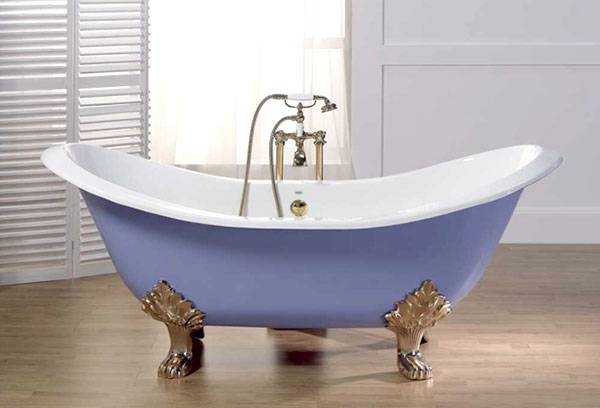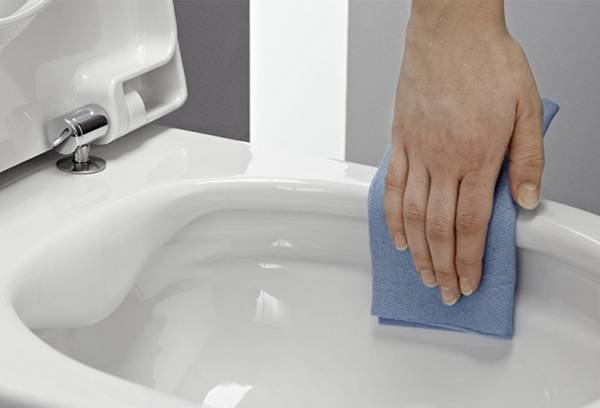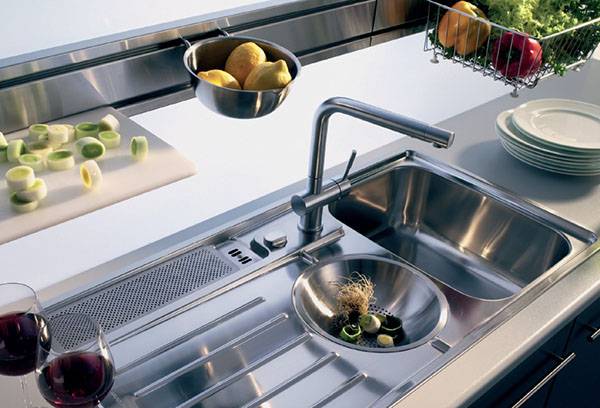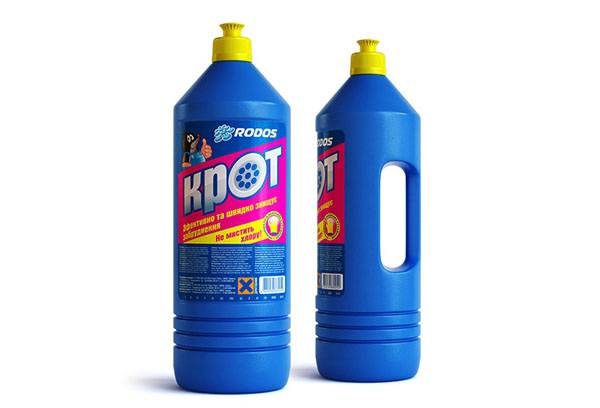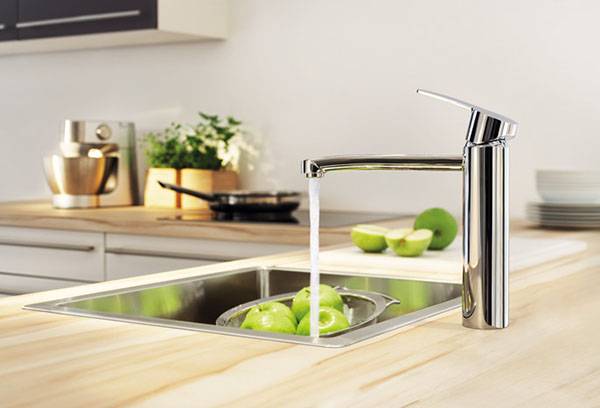What types of plumbing care products are there and how to choose the best?
Proper care of plumbing equipment involves the use of detergents and cleaners that will effectively remove dirt and disinfect the surface, but will not damage the top protective layer and disrupt the decorative properties of the devices. Sanitary appliance care products come in the form of powders, gels, foams, liquids, creams and granules. Each of them has a set of qualities necessary when processing a certain type of plumbing: for example, removing limescale, fighting fungus, disinfection, forming a protective film, etc. Therefore, the search for a household chemical should begin with determining the properties that it should have.
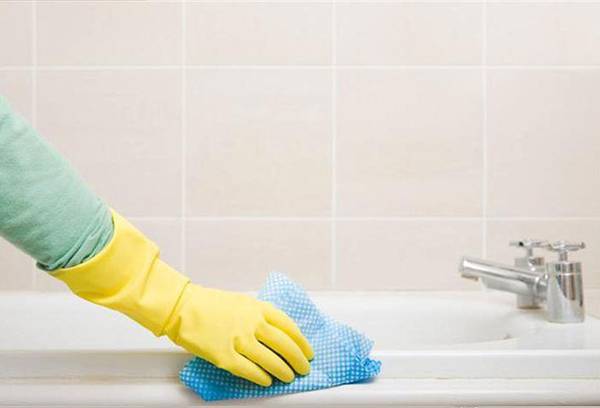
Acrylic bath cleaners
There are damage-resistant steel or cast iron bathtubs with an enamel coating and high-maintenance acrylic products. In order for such a bathtub to last a long time, maintaining its original appearance, it is necessary to follow the rules for caring for acrylic surfaces.
- Do not place metal objects inside the bathtub.
- Do not use household chemicals intended for cleaning surfaces made of other types of materials.
- Avoid products containing ammonia, acetone, chlorine and abrasives that can damage the surface. For processing, use soft sponges or napkins.
- When bathing animals, you should cover the bottom with a special mat prepared for these needs.
- After using the chemical, rinse the surface of the bath with clean water.
- It is not advisable to pour very hot water into the bath.
- After taking a bath, wash the surface with detergent, rinse and wipe dry with a soft cloth.
- Products for an acrylic bath should have a uniform consistency without lumps or abrasives. Before using a new product (even if it is intended for acrylic), you need to test it on a small surface area.
How to clean an acrylic bathtub at home most effective:
- "Akrilan";
- Cif;
- Team Profi;
- "Mr. Cheester";
- Bass;
- Acryl Polish;
- Triton;
- Ravak Cleaner.
Acrylan allows you to quickly get rid of mold, limescale, soap residue and traces of rust. The product is soft and does not destroy the surface of the acrylic bathtub. Ravak Cleaner is economical in use and easily copes with lime deposits, in addition, it renews the protective layer.
Advice
The Ravak line cleans, disinfects and restores coatings. If you need an acrylic bath gel, you should pay attention to the inexpensive and effective Ravak product.
Team Profi - products that do not contain abrasives. The composition adds shine and forms a durable protective film. And Acryl Polish will help polish and remove minor scratches.
Caring for an enamel bath
Conventional home remedies are often used to care for the surface of an enamel bathtub. To give shine and cleanliness to an enamel bath, it is treated with a non-abrasive cleaner and washed.
Limescale is removed with turpentine. A small amount of solvent is applied to the stain, and after removing it, it is washed off with a solution of washing powder.
Traces of rust can be removed with a mixture of ammonia and hydrogen peroxide in a 2:1 ratio. “Red” stains are moistened with this composition, and then washed with water. A 1:1 solution of vinegar with water and a pinch of salt will help with old stains.
To whiten an enamel bathtub, you should purchase the appropriate detergent:
- Lemon Fresh;
- Screen;
- Springclean Spray;
- TD 10.
Important!
All these products can be dangerous for enamel that has not been factory fired or has been restored. In order to preserve the enamel, you should not keep the bath in water for a long time; be sure to wash and wipe it after each bath.
Caring for ceramic sinks and toilets
Most pastes and powders for cleaning sanitaryware sinks contain abrasives to one degree or another: pumice, ground quartz, chalk, borax, etc. In addition, they may contain surfactants, sodium phosphates, and chlorine.
High-quality toilet cleaning chemicals must meet a number of requirements:
- fight limescale;
- remove household pollution;
- remove rust stains;
- disinfect the surface.
The chemistry intended for cleaning toilets may be based on some of the listed substances.
- Chlorine.
Chlorine in detergents whitens, cleanses and destroys pathogenic microflora.
- Alkalis and acids.
Alkalis dissolve greasy stains well. Products containing acid concentrates are effective against lime deposits and rust, but require special care in use. If it gets into the eyes or mucous membranes, sulfuric or hydrochloric acid can cause a chemical burn.
- Surfactant
Cationic and anionic surfactants are considered the most harmless. Cleaning products should contain no more than 15% nonionic surfactants.
According to consumer estimates, the most effective means for cleaning toilets are:
- comet;
- Cillit Bang;
- Sanfor 10 in 1;
- "Toilet duckling";
- "Sanox Ultra";
- Sanita - anti-rust gel;
Toilet duck, Cillit and Domestos are concentrated gels with acids, and Comet 7 is worth purchasing if you need to ensure a long-lasting effect. Cillit Bang, Domestos, Sanita gels can cope with old rusty stains, and Sanfor 10 in 1 gel with chlorine can disinfect and whiten.
Caring for Metal Kitchen Sinks
Cleaning a stainless steel sink is not difficult. After use, it is simply treated with a cleaning agent or detergent, washed with water and wiped dry with a napkin.
Such surfaces are very susceptible to oxidation and the appearance of dark spots.
Home remedies for darkening are:
- table vinegar;
- baking soda;
- potato starch.
Advice
Any stainless steel products can be bleached with starch or the broth in which potatoes were boiled. Pour this hot liquid over the darkened sink; you can also rub the stains with potato starch.
Pipe cleaning
Chemicals for clearing blockages in pipes are safe for products made of any material (including plastic). Pipe cleaning products differ somewhat in the nature of their action.
- Tiret Turbo gel removes blockages in just 5 minutes.
- Clorox works even faster, with consumers estimating that it clears a pipe in 30 seconds.
- Luxus is indispensable for showers and bathtubs. It dissolves grease, dirt and hair.
- Granular "Mr. Muscle" is able to remove blockages in a single use.
Cleaning faucets
Many plumbing products are made of metals and alloys, and may also have gold or chrome plated finishes.To clean such parts, you cannot use pastes with large abrasive particles.
Aluminum products are wiped with a mixture of 10% ammonia and water with the addition of 30 g of borax, then washed with water. Copper, bronze, brass or silver parts are rubbed with various pastes using a piece of woolen cloth. Chrome or nickel plated surfaces are cleaned with chalk powder.
The following are recognized as effective means for cleaning metal plumbing fixtures:
- Pulirapid;
- Groh clean;
- Ravak;
- Cillit Bang;
- "Vault effect".
The main condition for effective plumbing maintenance is regularity and the correct choice of household chemicals. At the same time, plumbing care products must match the type of surface so as not to damage the decorative protective layer. If you follow simple recommendations, you can extend the life of your products by several years or more.
